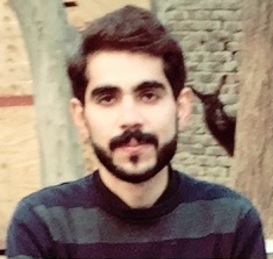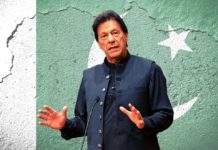Disclaimer: The Eqbal Ahmad Centre for Public Education (EACPE) encourages critical and independent thinking and believes in a free expression of one’s opinion. However, the views expressed in contributed articles are solely those of their respective authors and do not necessarily reflect the position or policy of the EACPE.
This writing is based on some of the contradictions that writer has chased few days back in a sitting with members of Progressive Writers Association (PWA), Islamabad. The title of discussion was “Our Narrative of Security and the Concept of Welfare State” while Mr. Arshad Mahmood, a distinguished writer and a staunch critic of military establishment, was the resource person. The speaker is in favor that Pakistan should be a welfare state rather than a police state. He, during his presentation, made a remark that if Pakistan wants to become a welfare state, she must revisit her national narrative which is solely based on ‘failed’ Two Nation Theory and hatred for and propagation of perpetual threat from India. He opined that, in wake of this so-called threat and hatred, a big piece of cake in form defense expenditures falls into the pockets of military. To him, it is definitely oppression and unjust at all. The writer seconds this view of him. While shedding light on way forward, Mr. Arshad Mahmood suggested that after changing the national narrative, an accumulation of handsome capital in federal government’s exchequer will make Pakistan a welfare state in a sense when this amount through trickle-down effect will rain over the masses. Consequently, the pursuit of happiness will then be possible in all respects. (Accumulation of capital is one the features of liberal economy). This is really the point of concern for writer.
In this article, the concept of welfare state that Mr. Arshad Mahmood put forth has been challenged as it is paradoxical in its entirety. For sake of refuting him academically, the writer will jot down a recent example from US when Barak Obama was in power. In US (one of the liberal economies of the world), during 2007-08 financial crises, ten million people went homeless while banks encountered critical default. Despite the fact that US had an enough accumulated capital it did not provide homes to homeless people, rather it made drowning banks apple of its eye and financially supported them. If US were a welfare state, its first priority then would have been the rehabilitation of masses and not the banks under any circumstances. Liberal economic system has nothing to do with what is better in public interest, rather it stresses only on profit by keeping anything at stake. This is one of the reasons why liberal economy and welfare state cannot coexist.
Now, the question that demands attention is that which system then guarantees welfare of the public if liberal economic system lacks this tendency. In my opinion, it lies in socialism. Some will respond that socialism is nothing more than a utopia (writer defies this argument against socialism). The next best available option will then be social democracy. In social democracy, on one hand states enjoy intervention in market and on the other hand ensures better distribution of resources, free education, free medical facilities, guaranteed housing, old age benefits, stipend for unemployed and so on and so forth. Liberal economy shows carelessness for these essential services and focuses only on tactics which facilitate snatching money from people’s purse. This is why liberal economy and welfare state are in contrast to each other; a state will just be nominal and delusional welfare state if it does not have social democracy. Social democracy is the flip-side of welfare state.
History of Pakistan is filled with examples where external factors have left their impression on internal decision making setup.
Furthermore, Mr. Arshad Mahmood was asked to comment on whether only internal factors are responsible for ills of Pakistan or externals factors too have some contribution. Mr. Arshad Mahmood totally withdrew from the role of external factors, and responded that during the entire course of history, Pakistan has unwisely followed the tradition of shifting the burden of its blunders on the shoulders of its so-called foes. Writer thinks that it is a half-truth. While any happening, even if it is coincidental, is translated in terms of conspiracy against the castle of Islam, writer thinks that it’s a half truth and not the whole story. As Antonio Gramsci in ‘The Prison Notebooks’ writes, world has unique characteristic of dynamism so both external and internal factors, through recursive action, play their role; thus the negation of one, as in this case, is sheer irrational. History of Pakistan is filled with examples where external factors have left their impression on internal decision making setup. Consequently, one cannot understand menaces of Pakistan by underestimating the role played by both internal and external factors.
Change from bottom to top happens to be sustainable and long-lasting and it leaves admirable implications for days to come. Mr. Arshad Mahmood holds totally different standpoint. He seconds that paradigm shift in Pakistan is possible but only from the top. In wake of this shift, miseries being faced at bottom will then meet their end. Relying only on the few at top, those who have exploited the society, that they will set house in order, in a nutshell, is wishful thinking and an illusion. In capitalism, a system in which selfishness and competition are the widely recognized and worshiped values, none will withdraw from its personal interest. Thus it does not click writer’s rationality that those in top will pave for change. Moreover, the change that comes from bottom will be the result of gradual process and alters the behaviors in slow pace. The efforts from above regarding the imposition of particular changes, firstly, will be of no utility and, secondly, it will only serve the interest of specific class or classes. Consequently, the invisible poor will remain in no less than hell. The various ‘classes’ of blood suckers under any condition will never give up so the only means left, for those at the bottom, to achieve this end is “Snatch! All is yours.”
The discussions, like the one arranged by PWA, have their significance as they help in intellectual evolution of society and develop a culture of healthy debate. This write-up presents lack of agreement with some of arguments that Mr. Arshad Mahmood shared on different issues. Remarks and response will be highly appreciated!
About the Author:

Haider Nisar Sawati is M.Phil student in National Institute of Pakistan Studies (NIPS), Quaid-e-Azam University (QAU), Islamabad. He also serves as Assistant Editor for Gandhara Journal of Research in Social Sciences (GJRSS).
He can be accessed at haider.n911@gmail.com









Interesting and appreciable effort to initiate a culture of academic dialogue.